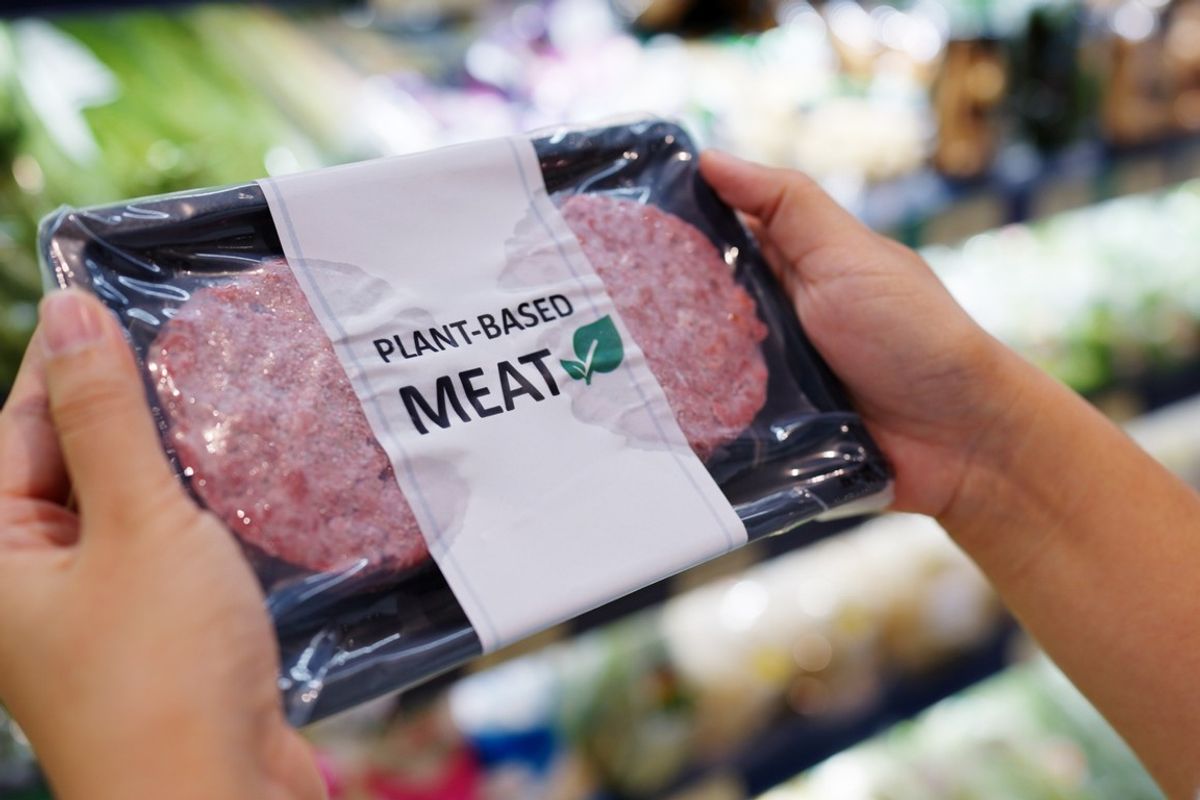- Government’s vision for a ‘good food cycle’ highlights alternative proteins as a key growth opportunity.
- GFI Europe calls on the government to invest in a £30 million innovation fund for plant-based foods and include protein sales in mandatory reporting measures.
- Innovations like plant-based meat and precision fermentation can contribute to the government’s ambition for a healthy, resilient and sustainable food system.
The Good Food Institute Europe (GFI Europe) has welcomed the UK government’s new food strategy, which positions alternative proteins as a key opportunity for driving economic growth and closing the productivity gap in British food and drink manufacturing.
Published by the Department for Environment, Food and Rural Affairs (Defra), Towards a Good Food Cycle: A UK Government Food Strategy for England sets out a vision to make healthy and sustainable food the default option for consumers. Launched by Daniel Zeichner, the minister of state for food security and rural affairs, the strategy underscores the role of innovation in delivering a more resilient, productive food system.
The paper highlights the UK’s strong research and development base and advanced manufacturing capabilities, noting that the country is “well placed to develop new products and markets, including for healthier products and in alternative proteins.”
GFI Europe, a nonprofit and think tank, praised the strategy’s recognition of the sector’s potential. The organisation is now calling for more detailed policy support to turn this ambition into tangible growth — including backing for technologies such as precision fermentation, cultivated meat, and plant-based food production.
“Increasing the take-up of options like plant-based meat, which can provide people with a simple switch to reduce our current overconsumption of processed meat, is an excellent way of making the sustainable and healthy choice the default option for consumers,” Linus Pardoe, senior UK policy manager at GFI Europe, said.
“The food strategy represents a unique opportunity to capitalise on the expertise that has been developed in the UK over the last decade, and develop ambitious plans to unlock alternative proteins' potential to deliver food security, drive green growth and create new opportunities for food producers.”
The strategy also identifies a £14 billion productivity gap in the UK’s food and drink sector, positioning innovation — including in alternative proteins — as a central tool in addressing the challenge.
GFI Europe noted that innovative food, such as precision fermentation, can help deliver growth.
Precision fermentation has been used for decades to make rennet for the cheese industry but startups and researchers are now using it to develop egg and dairy proteins that can enhance plant-based products, along with sustainable palm oil and coffee compounds.
GFI Europe has urged the government to introduce a £30 million innovation fund to develop more affordable, tastier and nutritious plant-based foods, funded by UK Research and Innovation (UKRI) and the Defra.
Following announcements that large food companies will need to report on health metrics, set out in the government’s 10-Year Health Plan, GFI Europe has also called for mandatory reporting on the proportion of protein sales that come from plant-based foods.
This includes plant-based meat, which evidence suggests can reduce levels of LDL (bad) cholesterol, reduce the risk of bowel cancer, and improve gut health.
GFI Europe’s analysis found that the UK government had made good progress in developing sustainable new foods since Henry Dimbleby highlighted the importance of building a strong alternative protein ecosystem in 2021’s National Food Strategy, with rapid progress made in boosting public research investment.


